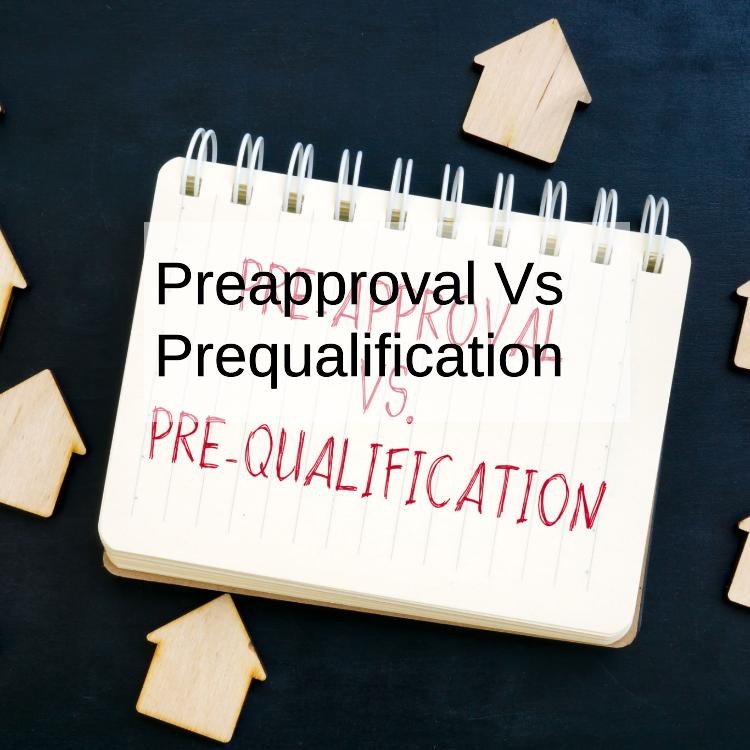Navigating the process of obtaining a mortgage loans can be daunting, especially when faced with terms like preapproval and prequalification. Both serve as initial steps in the mortgage application process, but they carry different levels of commitment and assurance from lenders. Understanding the distinctions between mortgage preapprovals and prequalifications is essential for prospective homebuyers to make informed decisions about their financing options.
Understanding Mortgage Preapprovals
A mortgage preapproval is a thorough evaluation of a borrower's financial background conducted by a mortgage loan lenders. It involves a comprehensive assessment of the borrower's income, assets, credit history, and debt-to-income ratio to determine the maximum loan amount for which they qualify.
Key Characteristics of Mortgage Preapprovals:
- Detailed Application Process: Borrowers must complete a detailed application, providing documentation such as pay stubs, tax returns, bank statements, and other financial records.
- Credit Check: Lenders conduct a hard credit inquiry to assess the borrower's creditworthiness and determine their credit score.
- Conditional Commitment: A mortgage preapproval provides a conditional commitment from the lender, stating the maximum loan amount the borrower qualifies for, pending verification of information and satisfactory property appraisal.
- Strengthens Buyer's Position: Having a preapproval letter strengthens the buyer's position in the eyes of sellers, demonstrating their seriousness and ability to secure financing.
Exploring Mortgage Prequalifications
A mortgage prequalification is an initial assessment of a borrower's financial situation based on self-reported information. It provides an estimate of the amount a borrower may be eligible to borrow based on their stated income, assets, and debt.
Key Characteristics of Mortgage Prequalifications:
- Simplified Application Process: Prequalifications typically involve a simplified application process, where borrowers provide basic financial information without extensive documentation.
- Soft Credit Inquiry: Unlike preapprovals, prequalifications do not require a hard credit check. Lenders may perform a soft credit inquiry or rely solely on the information provided by the borrower.
- Non-Binding Estimate: Prequalifications provide a non-binding estimate of the loan amount for which the borrower may qualify. It is not a guarantee of loan approval.
- Limited Credibility: While prequalifications offer insight into potential borrowing capacity, they carry less weight than preapprovals in the eyes of sellers and may not accurately reflect the borrower's true financial standing.
Factors to Consider When Choosing Between Preapproval and Prequalification
When deciding whether to pursue a loans mortgages preapproval or prequalification, several factors should be taken into consideration to align with the borrower's financial goals and needs.
Consideration Factors:
- Financial Preparedness: Borrowers with a clear understanding of their financial situation and a strong desire to purchase a home may opt for a mortgage preapproval to demonstrate their seriousness to sellers.
- Accuracy of Information: If borrowers have confidence in the accuracy of the financial information they provide and seek a preliminary estimate of their borrowing capacity, a prequalification may suffice.
- Competitive Advantage: In competitive real estate markets, where multiple offers are common, having a mortgage preapproval can give buyers a competitive edge over those with only prequalifications or no financing in place.
- Property-Specific Requirements: Some sellers or real estate agents may require a preapproval letter as part of the offer submission process, making it necessary for borrowers to obtain a preapproval before house hunting.
Pros and Cons of Mortgage Preapprovals
Pros:
- Provides a clear understanding of the maximum loan amount for which the borrower qualifies.
- Demonstrates financial readiness and seriousness to sellers, strengthening the buyer's position in negotiations.
- Helps identify potential issues or discrepancies in the borrower's financial background early in the process.
Cons:
- Requires more time and documentation upfront, delaying the house hunting process.
- Involves a hard credit inquiry, which may temporarily impact the borrower's credit score.
- Not a guarantee of loan approval, as final approval depends on additional factors, including property appraisal.
Pros and Cons of Mortgage Prequalifications
Pros:
- Offers a quick and simplified way to estimate borrowing capacity without extensive documentation.
- Does not involve a hard credit inquiry, minimizing the impact on the borrower's credit score.
- Provides a preliminary indication of affordability, allowing borrowers to explore potential financing options.
Cons:
- Offers a non-binding estimate of borrowing capacity, which may not accurately reflect the borrower's actual eligibility.
- Carries less credibility with sellers and may not strengthen the buyer's position in competitive real estate markets.
- Does not provide a comprehensive assessment of the borrower's financial background and creditworthiness.
Making an Informed Decision
In summary, both mortgage loan originator preapprovals and prequalifications serve as valuable tools in the home buying process, offering insights into borrowing capacity and financial readiness. While preapprovals provide a more comprehensive assessment and carry greater weight with sellers, prequalifications offer a quick and simplified way to estimate affordability.
Ultimately, the decision between a mortgage preapproval and prequalification depends on the borrower's financial preparedness, competitive market conditions, and specific goals in the home buying process. By understanding the differences and considering individual circumstances, borrowers can make informed decisions to navigate the mortgage application process effectively and pursue their homeownership dreams with confidence.
Frequently Asked Questions (FAQ) - Mortgage Preapprovals Vs. Prequalifications: Which Should You Get?
Q1: What is the difference between mortgage preapprovals and prequalifications?
A1: Mortgage preapprovals and prequalifications are both preliminary steps in the mortgage loan insurance process, but they differ in terms of depth and commitment. Prequalifications provide an estimate of how much you might be able to borrow based on self-reported financial information, while preapprovals involve a more thorough assessment by the lender, including documentation and a credit check.
Q2: How do mortgage preapprovals and prequalifications affect the home buying process?
A2: Both preapprovals and prequalifications can strengthen your position as a buyer by demonstrating to sellers that you are serious and financially capable. However, preapprovals carry more weight because they involve a comprehensive review of your finances, providing sellers with more confidence in your ability to secure financing.
Q3: Is it necessary to obtain both a preapproval and a prequalification?
A3: It's not necessary to obtain both, but it can be beneficial to do so. Prequalifications offer a quick estimate of your borrowing potential, helping you set realistic expectations. Preapprovals, on the other hand, provide a more accurate picture of your purchasing power and strengthen your offer when negotiating with sellers.
Q4: How do lenders determine prequalification amounts?
A4: Lenders determine prequalification amounts based on the information provided by the borrower, including income, assets, and debts. However, prequalification amounts are estimates and may change once the lender conducts a more thorough review during the preapproval process.
Q5: What documents are required for mortgage preapprovals?
A5: Mortgage preapprovals require documentation such as pay stubs, tax returns, bank statements, and proof of assets. Lenders also conduct a credit check to assess the borrower's creditworthiness and determine the terms of the best mortgage loan insurance.
Q6: How long does the preapproval process typically take?
A6: The preapproval process can vary depending on the lender and the complexity of the borrower's financial situation. In general, preapprovals can take anywhere from a few days to a few weeks to complete.
Q7: Can a preapproval amount change after it has been issued?
A7: Yes, a preapproval amount can change if there are significant changes to the borrower's financial situation or if the lender discovers new information during the underwriting process. It's essential to keep the lender informed of any changes that may affect your preapproval status.
Q8: Are preapprovals and prequalifications binding agreements?
A8: Preapprovals and prequalifications are not binding agreements to lend. They are conditional commitments from the lender based on the information provided by the borrower. Final loan approval is contingent upon the satisfactory completion of the underwriting process.
Q9: How long are preapprovals and prequalifications valid?
A9: Preapprovals and prequalifications typically have expiration dates, usually ranging from 60 to 90 days. It's important to be mindful of the expiration date and renew the preapproval or prequalification if needed before making an offer on a home.
Q10: Can I shop around for preapprovals and prequalifications with different lenders?
A10: Yes, it's recommended to shop around and compare preapproval and prequalification offers from multiple lenders. This allows you to explore different loan options and choose the one that best suits your needs and financial situation.
Q11: Do preapprovals and prequalifications guarantee loan approval?
A11: Preapprovals and prequalifications provide insight into your borrowing potential but do not guarantee loan approval. Final loan approval is contingent upon the completion of the underwriting process, during which the lender conducts a comprehensive review of your financial documents and credit history.
Q12: How can I improve my chances of obtaining a mortgage preapproval or prequalification?
A12: To improve your chances of obtaining a home mortgage loans preapproval or prequalification, focus on maintaining a stable income, paying bills on time, reducing debt, and monitoring your credit score. Providing accurate and complete documentation to the lender can also expedite the process and increase your chances of approval.
















